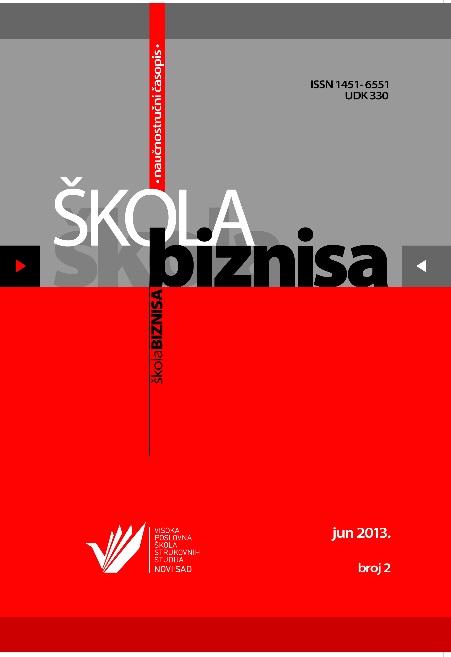THE „LAST MINUTE“ TOURIST ARRANGEMENTS TREND IN SERBIA
Abstract
Tourist agencies in Serbia try to follow trends regardingthe arrangements' offer. One must admit that the buses owned by the transporters are modern and of a high quality, that there exist good, educated and experienced tourist guides. If one sees the choice of the arrangements, types of the stationary arrangements, accommodation facilities at the destinations and compares them with the same or similar offers that other worldwide tourist agencies have, one will note that the offer in Serbia is not inferior to the offer of the world-known tour-operators such as Dertour. However – many Serbian tourist agencies have the same partners on the destinations (Spain, France, Italy, Greece...) and the same accommmodation facilities (houses and hotels) as the large tour operators. In such a quality offer, in a turbulent market, with the tourists that have limited power of payment, tourist agencies in Serbia are forced to go „below the price“. The term of lowering the prices in tourism is often called „last minute“, and can be present in any form of tourist arrangement. In Serbia it begins to emerge in the last decade, and, after the abolition of visas for traveling abroad, it became omnipresent in tourist offers of Serbian tour operators.
References
Štetić, S., & Šalov, P. (2000). Poslovanje turističkih agencija. Savezni centar za unapređenje hotelijerstva - ugostiteljstva.
Veljković, S. (2009). Marketing usluga. Beograd: Centar za izdavačku delatnost Ekonomskog fakulteta.
- Authors retain copyright and grant the journal right of first publication with the work simultaneously licensed under a Creative Commons Attribution License that allows others to share the work with an acknowledgement of the work's authorship and initial publication in this journal.
- Authors are able to enter into separate, additional contractual arrangements for the non-exclusive distribution of the journal's published version of the work (e.g., post it to an institutional repository or publish it in a book), with an acknowledgement of its initial publication in this journal.
- Authors are permitted and encouraged to post their work online (e.g., in institutional repositories or on their website) prior to and during the submission process, as it can lead to productive exchanges, as well as earlier and greater citation of published work (See The Effect of Open Access).

